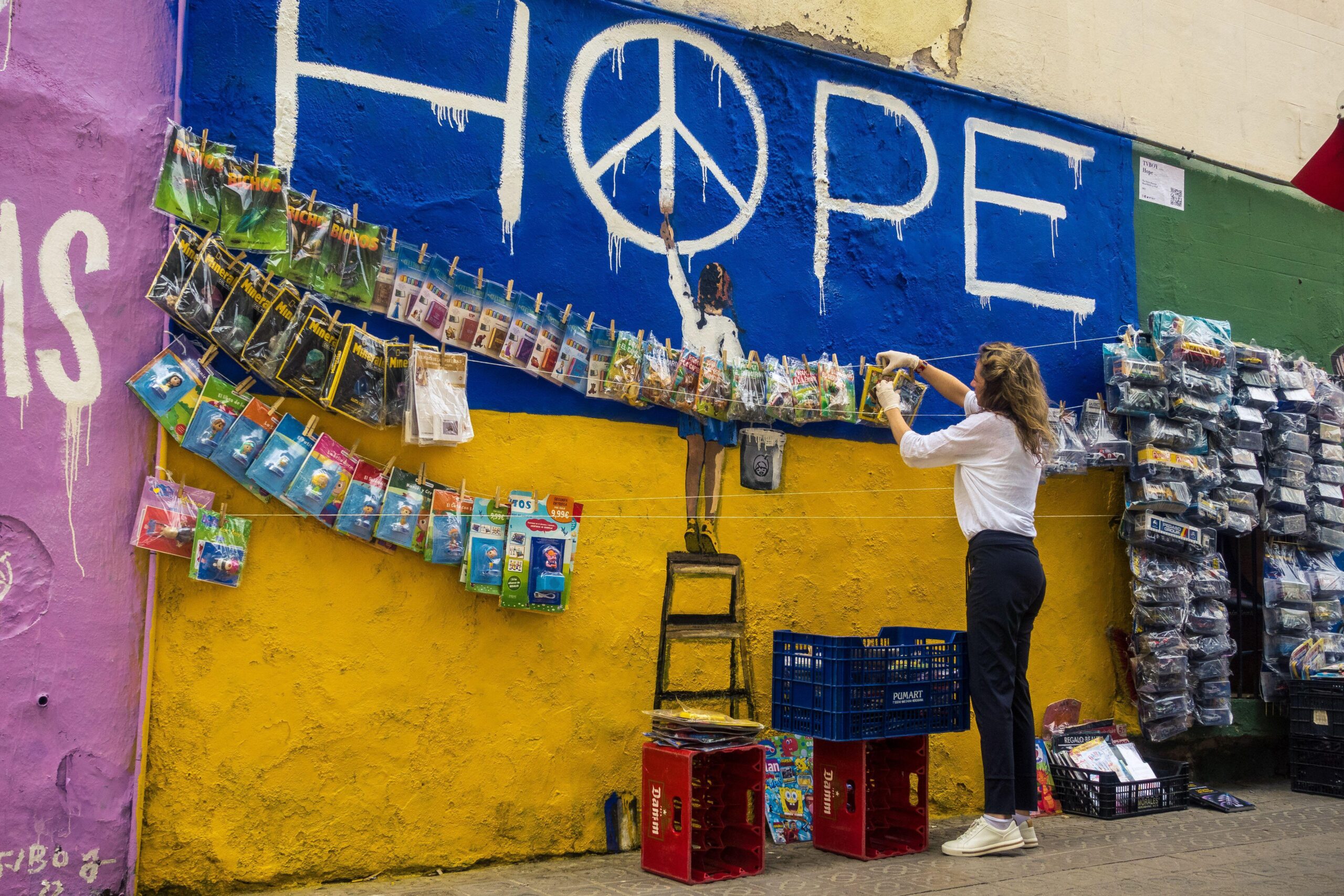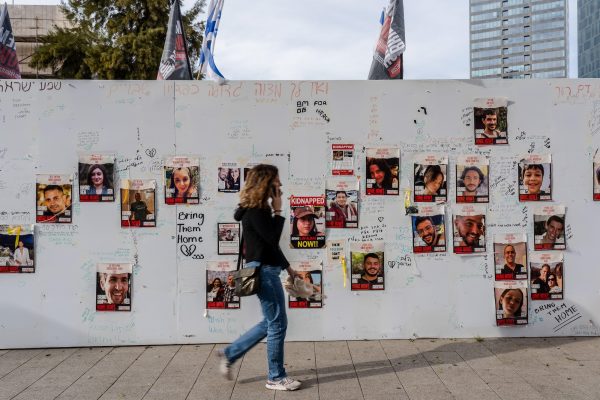Rajan Menon observes that “serious debate about the Ukraine War . . . has yet to begin.” He is spot on.
The “official position,” which prevails on both sides of the Atlantic, maintains that Ukraine should and will deal Russia a decisive defeat and restore full territorial integrity, while Western governments—with the broad support of their foreign policy establishments—back Ukraine for “as long as it takes.” Anything less, the conventional wisdom holds, would be to acquiesce to Russian aggression and thereby undermine a rules-based international order that rests on safeguarding principles of sovereignty and territorial integrity.
A vocal minority has pushed back against this party line. Some question the narrative of Russian aggression, instead blaming the enlargement of NATO for provoking Moscow. Others (myself included) recognize that the invasion constitutes an unjustified, illegal, and immoral act of aggression, but doubt that Ukraine can achieve military victory. From this perspective, an eventual ceasefire and follow-on diplomatic process are inevitable. The for-as-long-as-it-takes camp has little patience for such questioning of a Western policy aimed at achieving a Ukrainian victory—even if such questioning is justified by the facts on the ground.
Menon helps leaven the conversation by providing a nuanced and thoughtful discussion of the war’s causes and the path ahead. Menon is right that NATO expansion contributed to Russia’s estrangement from the West, but that Moscow, not NATO, bears responsibility for the brutal war in Ukraine. So, too, is he right to urge the West to begin preparing for a diplomatic endgame—even if the time is not yet ripe to launch negotiations.
For now, the West should do as much as it can to ensure the success of Ukraine’s coming offensive, enabling Kyiv not only to recover occupied lands, but also to impose heavy losses on Russia and drive home to the Kremlin that time is not on its side. But even with more Western help and substantial Ukrainian advances on the battlefield, what likely looms ahead is a bloody stalemate, not a Ukrainian victory. Russian troops are dug in and enjoy numerical superiority. Ukrainians face shortages in manpower, ammunition, and air defenses. In the United States and among its NATO allies, public readiness to continue flowing arms and money to Ukraine has begun to diminish.
With a stalemate looming, the West needs to ready a diplomatic endgame that it would roll out as Ukraine’s offensive reaches its limits. Moscow may, by then, be ready to contemplate a diplomatic settlement, having suffered further losses on the battlefield. Assuming Ukraine is able to regain more territory, thereby strengthening its diplomatic leverage, Kyiv too may be ready to explore a negotiated endgame. Richard Haass and I recently argued that “the best path forward is a sequenced two-pronged strategy aimed at first bolstering Ukraine’s military capability and then, when the fighting season winds down late this year, ushering Moscow and Kyiv from the battlefield to the negotiating table.”
Menon lays out a constructive and plausible roadmap for doing just that, outlining what might constitute a territorial deal to which both Kyiv and Moscow might agree. However, while I am sympathetic to his effort to jump-start a concrete discussion of the potential terms of settlement, I take issue with two specific pieces of his argument.
First, Menon sees the risk of escalation as one of the main reasons the West should press Ukraine and Russia to end the war. He is right that escalation could lead to a “catastrophic turn of events,” and that the United States should therefore keep a watchful eye on the risk of a wider war between NATO and Russia. But the West should not deter itself by overestimating the risk of escalation. It is hard to understand why Russia would deliberately seek to widen the war when it is already struggling to fight just Ukraine. Bringing thirty-one NATO members into the conflict on the side of Ukraine would be a terrible bet for the Kremlin.
Nonetheless, the West should seek to end the war sooner rather than later for a number of compelling reasons. The war is imposing grievous losses on both sides, destroying Ukraine’s economy and running up astronomic costs of reconstruction. It is also producing socio-economic dislocations on a global scale by disrupting energy and food supplies and pushing up inflation. Geopolitical disorder is radiating outward from the war, pitting a bloc of liberal democracies against a coalition of Russia and China—with much of the Global South refusing to take sides. And the war is coming at the expense of other U.S. priorities, depleting the country’s weapons stockpiles and preoccupying the U.S. government at a time when building tensions in Asia necessitate greater U.S. attention and resources.
The West also needs to keep a close eye on the war’s impact on the home front. The threat to Western democracies posed by illiberal populism is at least as potent as the threat posed by Putin. Popular support for ongoing assistance to Ukraine is waning on both sides of the Atlantic. Meanwhile, the war is fueling inflation in both the United States and Europe, contributing to the socio-economic duress that strengthens the appeal of populism and the politics of grievance. The United States continues to suffer from intractable polarization. Public protests and strikes have been sweeping across France, Germany, the United Kingdom, and other European countries. Even if Russian aggression has engendered impressive Western resolve and unity, an endless war in Ukraine may well play to the advantage of illiberal populists who thrive on electoral discontent. The United States and its allies need to balance the fight for eastern Ukraine against homegrown threats to liberal democracy.
The second issue where Menon and I differ involves the details of his proposal for a territorial settlement. Menon’s proposed land swap—Russia keeps a chunk of the Donbas while returning to Ukraine the portions of Kherson and Zaporizhzhia that Russian forces now occupy—has an intrinsic logic. Russia does not end up empty-handed, and thus may prefer such a deal to the risk of further setbacks. Core elements of the proposal would also appeal to Ukraine, including recovery of a substantial portion of its territory and severance of the land bridge that connects Donbas to Crimea. Menon wisely suggests adding sweeteners for Kyiv, such as a fast track to membership in the European Union.
But Menon’s proposal does have a distinct downside: it entails acquiescing to Russia’s use of brute force to grab and annex its neighbor’s land. As an alternative, the West could propose a ceasefire at the end of this fighting season—and then defer to follow-on negotiations settlement of the status of the land and people still under Russian occupation. As Haass and I recommend, Kyiv would abandon efforts to retake these territories by force, and instead look to diplomacy to eventually restore territorial integrity. Although such a breakthrough could occur only after Russia enjoys new leadership, this approach has the advantage of blending pragmatism with principle by ending the war while keeping open the prospect that Ukraine will one day again be whole. It is worth keeping in mind that the United States never recognized Estonia, Latvia, and Lithuania as part of the Soviet Union. Patience paid off. All three countries are now independent democracies and members of NATO.
These are, however, the finer details. When it comes to the bigger picture, I am in complete agreement with Menon’s assessment that now is the time to begin preparing a diplomatic roadmap aimed at ending the war.








